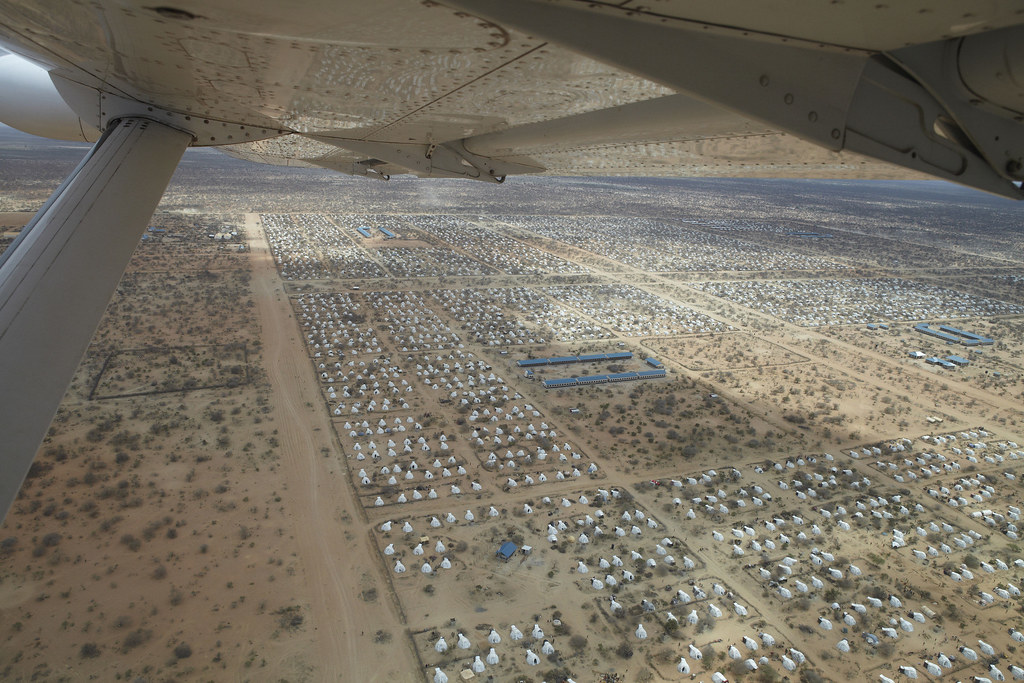The Kenya–Somalia Maritime Dispute and Its Potential National Security Costs
The at-times fraught relationship between Kenya and Somalia took a new turn in 2014, when Somalia submitted a compromis before the International Court of Justice (ICJ) claiming that Kenya was conducting illegal acts in what Somalia claimed to be part of its territory. The territory in question is a 100,000 square kilometer (38,610 square mile) triangular patch created by projecting the Kenya-Somali border eastward into the Indian Ocean.

The at-times fraught relationship between Kenya and Somalia took a new turn in 2014, when Somalia submitted a compromis before the International Court of Justice (ICJ) claiming that Kenya was conducting illegal acts in what Somalia claimed to be part of its territory. The territory in question is a 100,000 square kilometer (38,610 square mile) triangular patch created by projecting the Kenya-Somali border eastward into the Indian Ocean.
Kenya filed a counter-memorial in early 2017 arguing that Somalia’s claim was contrary to the two states’ 35-year tradition that the maritime boundary between the two ought to run along a parallel of latitude rather than the equidistant line that Somalia has now claimed. Kenya also argued that this “parallel of latitude” agreement was decreed in 1979 and “revised for greater accuracy” in 2005.
While the case is still before the ICJ, the diplomatic row over the boundary reignited when Kenya alleged that Somalia had proceeded to auction off oil-prospecting rights to the disputed area. Kenya also accused the Somali federal government of claiming, during an economic forum in London, that the disputed area was part of its territory.
In response to these events, the Kenyan Ministry of Foreign Affairs released a strongly worded statement to Somalia on Feb. 16, which read, in part:
This outrageous and provocative auction [by Somalia of oil and gas blocks in maritime territorial area claimed by Kenya] deserves and will be met with a unanimous and resounding rejection by all Kenyans as well as all people of goodwill who believe in the maintenance of international law and order and the peaceful and legal resolution of disputes.
Soon after, Kenya recalled its envoy to Somalia and ordered his Somali counterpart to return to Mogadishu.
Representatives of the foreign affairs ministries in both countries have stated their desire to resolve this dispute peaceably; however, even without direct conflict, there may be national security cost to continued tension between the two countries.
Military Action Against Al-Shabaab
In October 2011, on invitation by the Somalia government, the Kenya Defence Forces conducted a military incursion into Somalia to suppress attacks by the terrorist group Al-Shabaab. Although the Kenyan soldiers, in 2012, became part of African Mission in Somalia (AMISOM), the unilateral Kenyan military presence in Somalia remains large and is widely credited for considerably destabilizing the Al-Shabaab operations.
If the current diplomatic dispute escalates, Kenya may decide to prematurely withdraw its troops from Somalia, which in turn may create a security vacuum and give Al-Shabaab room to reorganize. Since early 2019, contrary to advice by the African Union, the Kenya Defence Forces have systematically moved their bases in Somalia closer to the Kenyan border.
Even if this withdrawal does not occur, the continued row may increase the local population’s resentment against Kenyan military presence in Somalia. This resentment could then be exploited by Al-Shabaab as part of the group’s recruitment propaganda machinery.
Refugee Crisis at Daadab Refugee Camp, Kenya
The ongoing dispute may also have adverse effects on refugees in Kenya—the majority of whom are from Somalia—whether they’ve resettled in the Daadab refugee camp or other environs.
Kenya has always been uncomfortable with its responsibility to host refugees fleeing from Somalia. This discomfort worsened with increased terrorist attacks from Al-Shabaab, whose membership consists mainly of persons of Somali origin. Some of these attacks include the Westgate Mall and the Garissa University attacks. In March 2019, the Kenyan government, citing “national security concerns,” announced its intention to close the refugee camp by the middle of the year. If it happens, this closure may increase tensions with Somalia since it will have the inevitable effect of returning Somali refugees to violent spaces within their native country.
Entry of Somalia Into the East African Community
Somalia has agitated since 2013 to join the East African Community (EAC), a bloc that seeks regional integration in economic, social and, ultimately, political spheres. As noted by Somalia’s ambassador to Tanzania, if granted entry into the EAC, Somalia would be able to strengthen its economic integration domestically in order to compete effectively in international markets.
Kenya is an influential member of the EAC and may very well use its influence to block any bid by Somalia to join the organization. This move may be injurious to the newly set-out EAC Agenda on Peace and Security. Article 124 of the Treaty for the Establishment of the East African Community recognizes the need for peace and security within the East African Community partner states. To pursue this goal, the EAC is preparing a strategic plan that “will anchor Peace and Security Sector activities, giving form to the areas of co-operation in addressing regional peace and security threats.”
While Somalia is not a member of the EAC, it is ludicrous to discuss peace in the East African region without including Somalia. Therefore, if Kenya adopts a hard diplomacy stance, it may hamper any efforts by the regional bloc to buttress existing peace and conflict management in the region.
Conclusion
Both states have undone their actions and reposted their envoys in the respective stations. This does not mean, however, that relations are back to normal. The maritime dispute is still before the ICJ, and the Kenyan government is still intent on shutting down the Daadab refugee camp. If tensions between Somalia and Kenya over the maritime boundary reescalate, the two states may pursue several options, some of which are highlighted above, to obtain an overall “win” over the other. Those choices may then have a negative impact on security in Somalia, the region and beyond.





